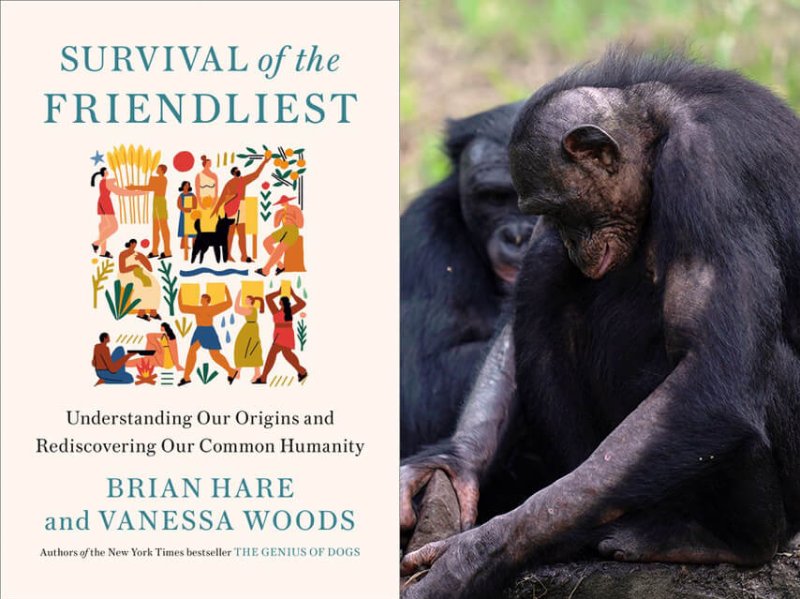Most people assume that Darwin was talking about physical strength when referring to “survival of the fittest,” meaning that a tougher, more resilient species always will win out over its weaker counterparts. But what if he didn’t mean that at all?
Scientists Brian Hare and Vanessa Woods, both researchers at Duke University’s Center for Cognitive Neuroscience, believe something else has been at work among species that have thrived throughout history, successfully reproducing to sustain themselves, and it has nothing to do with beating up the competition.
Their new book, “Survival of the Friendliest: Understanding Our Origins and Rediscovering Our Common Humanity,” posits that friendly partnerships among species and shared humanity have worked throughout centuries to ensure successful evolution. Species endure — humans, other animals and plants — they write, based on friendliness, partnership and communication. And they point to many life examples of cooperation and sociability to prove it.
“Dogs are exhibit A,” [Hare] says. “They are the extremely friendly descendants of wolves. They were attracted to humans and became friendly to humans, and changed their behavior, appearance and developmental makeup. Sadly, their close relative, the wolf, is threatened and endangered in the few places where they live, whereas there are hundreds of millions of dogs. Dogs were the population of wolves that decided to rely on humans — rather than hunting — and that population won big.”































